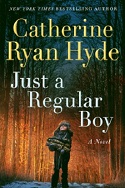 Synopsis:
Synopsis:
When nineteen-year-old Jill Moss goes missing near the Utah-Arizona border, everyone has an opinion. But only Norma Gallagher, a search and rescue volunteer, knows the real story.
Norma already found Jill, huddled in a cave, and terrified that her abusive boyfriend, Jake Willis, will kill her if he ever sees her again. To protect Jill from a dangerous man, Norma quietly delivers the girl to her grateful parents in California, even though she’s conflicted. Keeping Jill safe and hidden from Jake, the press, and the public will be their secret. But Norma knows secrets can’t be kept forever.
Five years later, the disappearance stirs a new media frenzy. even though her body was never found, Jake is arrested for Jill’s murder on the strength of circumstantial evidence. Norma knows, of course, he didn’t kill her.
As Jake is about to stand trial, lust for retribution inflames public opinion and Jill’s family refuses to come forward, forcing Norma to make a life-changing decision.
What are the consequences if she stays silent? And what are the risks if she dares to finally tell the truth? New York Times bestselling author Catherine Ryan Hyde delivers another gripping novel about justice, lies, and impossible choices.
Review:

Since publishing her first book when she was in her mid-thirties, bestselling author Catherine Ryan Hyde has gone on to publish forty-four more. In each, she examines the ways in which people respond to seemingly random incidents and the consequences that flow from them, ethical and moral conundrums, and the complexities of relationships. Frequently, those relationships take her characters by surprise and transform their lives. She refers to the lasting bonds they form as “found families.” She observes, “I think I come back again and again to the simple question: What is our responsibility to each other? We seem to have social contracts that limit our involvement in the problems of others, but people step over those lines in the sand all the time. So now I wonder why the lines are even there. And I’m fascinated by people who help not because they have to, but because they can.”
In A Different Kind of Gone, Hyde’s characters wrestle with the question of whether and when the ends justify the means. And whether the price of protecting an individual is too high when compared with the impact and hardships imposed upon others. She thoughtfully and compassionately tackles the issue within the context of domestic abuse.
Norma Gallagher is a fifty-eight-year-old divorced woman living in the tiny town of Sploot which straddles the Utah-Arizona border. She works as a bartender with her good friend, Betty, and is a member of the volunteer search and rescue team. With her beloved horse, Fred — Saint Fred to the locals who believe he is perfect – and two hound dogs, Gracie and Lonny, she helps find lost hikers and campers. After several years of uninterrupted good luck, within the past six months she has found two lost souls for whom rescuers arrived too late. And is a bit haunted by those experiences, even though both perished from natural causes – injuries sustained in a fall and dehydration.
As the story opens, she is pressed into service again. Jill Moss, just nineteen years old, has gone missing from the nearby Rocky Ridge Campground. She was reported missing by her boyfriend, Jake, with whom she was spending spring break. Jill is not “an outdoor person,” and lacks hiking experience and skills. More disconcerting is the fact that the prior evening, other campers observed Jill heading for the campground exit when Jake grabbed her and twisted her arm behind her back, physically forcing her to return to their tent. That afternoon, she had texted her parents, “Leaving Jake for good. Wish me luck. If you don’t hear from me in 24 hours, call the cops.” Foul play is suspected immediately.
Norma finds Jill huddling in a cave. She set out from the campground intent on hiking to the highway and hitchhiking from there, but became lost. “I’m running away from my boyfriend,” she tells Norma. Jill is convinced that if Jake finds her, he will kill her. “There is no place where he won’t hurt me. That place doesn’t exist.” She begs Norma not to report that she has found Jill. From Jill’s perspective, she is literally asking Norma to save her life.
But that request leads Norma into an ethical and legal quagmire. She knows that the search for Jill will continue for quite some time, wasting precious and scarce resources, tangible and intangible. She will be required to ride the hills for days alongside her colleagues, pretending to search with them for a young woman only she knows isn’t missing at all. She is also aware that she, Jill, and anyone else they involve in the scheme could find themselves in serious legal jeopardy when the truth is eventually discovered. The sheriff will keep the case open, and there will be multiple lies told to law enforcement, false reports filed. Importantly, that is what troubles Norma most. Acceding to Jill’s wishes will require Norma to lie, something she never does. Doing so will change the way she lives her life, requiring her to “keep her stories straight.” Norma is also wise and experienced enough to comprehend that there will undoubtedly be “more unintended consequences” that she is unable to foresee or predict.
Against her better judgment, Norma agrees to call Jill’s parents, hoping a conversation with them will give her some perspective. Ensuring that Jill is safe, with food and water, she promises to return under cover of darkness after speaking with her parents to let her know whether she can grant Jill’s wish.
Owen and Teresa Moss, Jill’s worried and protective mother and father, are archetypical characters. Norma does not reveal her identity, explaining only that she is a member of the search and rescue team, and she located Jill, who is healthy and well. But Jill begged her not to reveal her whereabouts and condition, which is “really messing with me.” From personal experience, Norma appreciates the traumatic and destructive impact of both physical abuse and dishonesty. And she knows that in many instances, legal maneuvers prove futile. Abusers often disregard restraining orders and relentlessly search for partners who leave them. Predictably, Owen and Teresa are willing to risk anything to keep their daughter, who is not prone to exaggeration, safe. They implore Norma to bring Jill to their home, assuring her that if the truth comes to light, they will swear that Jill simply appeared on their doorstep without implicating Norma. Reluctantly, Norma agrees. Consistent with Hyde’s worldview, Norma feels she has a responsibility to keep Jill safe from Jake. After all, she is the one who discovered her hiding in the hills outside Sloot. And so she decides to help not because she has to, but because she can.
The search for Jill continues and Wanda, a tiny young woman in her twenties, comes into the bar. Norma is flabbergasted to learn she has hitchhiked from Connecticut because of her fascination with the case, which has drawn extensive media attention and speculation. Jill’s old social media posts have surfaced. Norma simply can’t fathom why Wanda wants to meet Jake, who is still staying at the campground. Through Norma, Hyde makes a cautionary point about the influence of news outlets and social media interactions upon gullible and impressionable young people. Six nights later, Jake himself appears in the bar and has an altercation with another male customer. None other than Wanda helps Jake to his feet and leaves the bar with him, assuring Norma that she intends to help him get back to the campground. Nine days later, Wanda stops in to say good-bye, cagily explaining that she is headed to Southern California with a guy she met in Sploot who is not her boyfriend because “he’s still hung up on his old girlfriend.” Wanda believes Jake’s lies about what really happened at the campground the night Jill disappeared and will not be dissuaded.
Five years elapse during which Norma, now sixty-three years old, and twenty-two-year-old Fred have continued to ride the hills with the search and rescue team. The fifth anniversary of Jill’s disappearance means that she will be declared legally dead. A month later, Wanda reappears in the bar. And the law is bearing down on Jake Willis, who is facing not just attempted murder charges for strangling his pregnant wife, but also a murder charge for killing Jill, even though her body was never recovered.
Hyde’s characters navigate all the unintended consequences of Jill’s entreaty and Norma’s decision to remain silent. Which are numerous and seemingly unending. In Hyde’s capable hands, the story unfolds in a straight-forward and unembellished manner. It is a riveting tale about the myriad repercussions that flow from decisions. The most pressing issue is the District Attorney’s determination to prosecute Jake for a murder he did not commit. But the evidence supporting the attempted murder charge is unassailable. Had a passerby not intervened, Jake’s wife and unborn child would almost undoubtedly be dead. But for Norma, that’s the problem. There is no way to know for sure that Jake would have brought further harm to Jill, no matter how likely it seems. Norma voices many feelings that Hyde shares, pointing out that Jake is not an ”animal” but is, rather, a man who has done some terrible things. But he was not born an abuser. Children learn to hate and mistreat others. “I think people need to be reminded that there is good in us. Yes, there is bad in us, too. But I continue to feel that we are basically good,” Hyde says. “Why do I think this? Because babies are not born violent and evil and gradually steered toward good by a series of altruistic experiences. It’s the other way around.”
Norma is a strong, principled woman who has survived her own tumultuous marriage, lies told about her, and years of estrangement from her two grown sons. She doesn’t much like people, preferring to live a solitary life with her animals in a modest home outside of the little town of Sloot. She fundamentally resents that her carefully constructed, peaceful life was disrupted and altered when her fate became inextricably intertwined with Jill’s. And she is deeply troubled and burdened by the weight of her guilt about the secret she agreed to keep and the deception in which she has participated for five years. As she once again considers all available options, there is far more at stake than the fallout that will impact her well-ordered life if she belatedly speaks up. Norma cares deeply about Jill’s well-being, as well as Wanda’s, and is a loyal friend to Betty. She weighs her moral obligation to Jake, who has indeed committed more than one crime but not the one that a corrupt District Attorney intends to level against him.
Hyde never fails to deliver a gripping, thought-provoking story about seemingly unremarkable people who find themselves faced with impossible choices that require them to consider and anticipate how their actions will help or hurt others. Hyde is renowned for expertly creating dramatic tension that inspires readers to ponder what they would do if they were in a similar situation, and A Different Kind of Gone is one her best efforts, in part because the stakes in this tale are incredibly high. Many people, including Jill’s parents, believe that Jake is capable of murder and his wife is a living – fortunately – testament to what might have been the tragic result of his unbridled rage. They would be happy to see Jake imprisoned for the rest of his life, irrespective of the specific legal charges that put him behind bars where he can never hurt Jill, his wife, or his child. For them, the charges are simply the means to a much-desired end.
But the American legal system, despite all its flaws, does not incorporate penalties for potential criminality and Norma believably wrestles with what might happen if she takes a principled stand. What if there is no one around to intervene next time and Jake does commit murder? What if Norma’s honesty provides Jake the opportunity to inflict harm again? Could she live with the consequences? Or would it be worse to live with the guilt of knowing that a man is imprisoned for a crime he never committed, even though he is guilty of other crimes?
Hyde includes a couple of shocking plot twists and revelations as she keeps the narrative moving forward at a steady, measured pace. And yet again illustrates through her characters that families are often comprised not just of those to whom we are genetically related, but also those we inadvertently happen upon and take into our hearts.
Hyde is a masterful storyteller and A Different Kind of Gone is a riveting, emotional resonant story through which Hyde makes a strong statement about domestic violence, women coming together to help and protect each other, as well as a child who is at risk. And she convincingly illustrates the value of female empowerment through positive role models and reinforcement.


















Comments are closed.